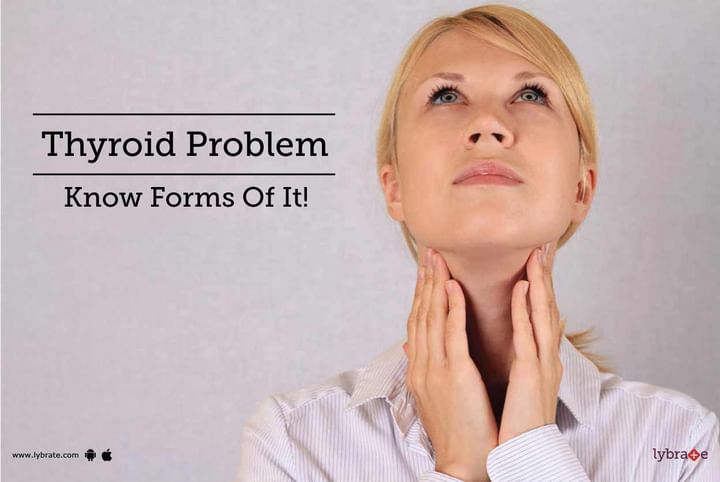Thyroid Problem - Know Forms Of It!
Almost all the metabolic functions of the body are controlled by the thyroid glands. This is a butterfly-shaped gland, located in the neck. It is responsible for producing hormones that control metabolism. When the gland fails to meet the requirement, it is called hypothyroidism. When the thyroid gland produces more hormones than required, then the condition is called hyperthyroidism. Both conditions can lead to various complications. The common thyroid disorders are Hashimoto’s disease, Grave’s disease, thyroid nodules, and goiter.
1. Hyperthyroidism and hypothyroidism: When the thyroid gland is overactive, it is called hyperthyroidism. It mostly affects women and men are rarely affected. Racing heart, shaking, profuse sweating, anxiety, sleep disorders, weight loss, nervousness, and bulging eyes are a few symptoms of this condition. Radioactive iodine is given orally or via injection to treat this condition. However, this can destroy the gland in rare cases and lead to hypothyroidism. The opposite of hyperthyroidism is hypothyroidism. Dry skin, memory problems, fatigue, weakness, constipation, coma and slow heart rate are its symptoms. Thyroid hormones pills are given to accelerate the function of the gland. In some cases, when the correct pills are not taken in the right manner, hyperthyroidism may result.
2. Hashimoto’s disease: Hashimoto’s disease is chronic lymphocytic thyroiditis. The symptoms include depression, fatigue, mild weight gain, thinning hair, constipation, puffy face, irregular menstruation, enlarged thyroid, and intolerance to cold. This condition affects middle-aged women mostly, though it can occur in all age groups. This immune system destroys the thyroid gland by mistake resulting in Hashimoto’s disease. Hormone replacing medications are used, and at times, surgery is done to remove a part of the thyroid gland. At times, the entire gland is removed.
3. Grave’s disease: Grave’s disease is an autoimmune disorder where the immune system attacks the thyroid gland supposing it to be a foreign body. This leads to overproduction of the hormones. Men and women of all age groups can develop this disease. This is a genetic disease. This condition causes irregular heartbeat, heavy sweating, irregular mensuration, sleeping problems, hand tremors, fatigue, and irritability. The immune system attacking the thyroid gland can never be stopped but only controlled. Beta blockers are given to control the heart rate, and radioactive thyroid is given. Removal of the thyroid gland through surgery is a permanent solution.
4. Goiter: This is enlargement of the thyroid gland. But it is not malicious. Deficiency of iron is the reason behind this disorder. It is also a symptom of hyperthyroidism. This affects people over 40 years of age. Tightness in the neck, coughing, wheezing, and hoarseness of voice are some of the symptoms of goiter. When left untreated, goiter can cause severe complications. Radioactive iodine and surgery are the two promising treatment options.
5. Thyroid nodules: Growths over the thyroid gland are called thyroid nodules and there are no causes behind these. This can be cancerous in a few cases. There are no symptoms in most cases, but difficulties in breathing and swallowing are often seen. Based on the tumor, the treatment option varies. Chemotherapy is one of the most effective treatments for thyroid nodules.


+1.svg)
